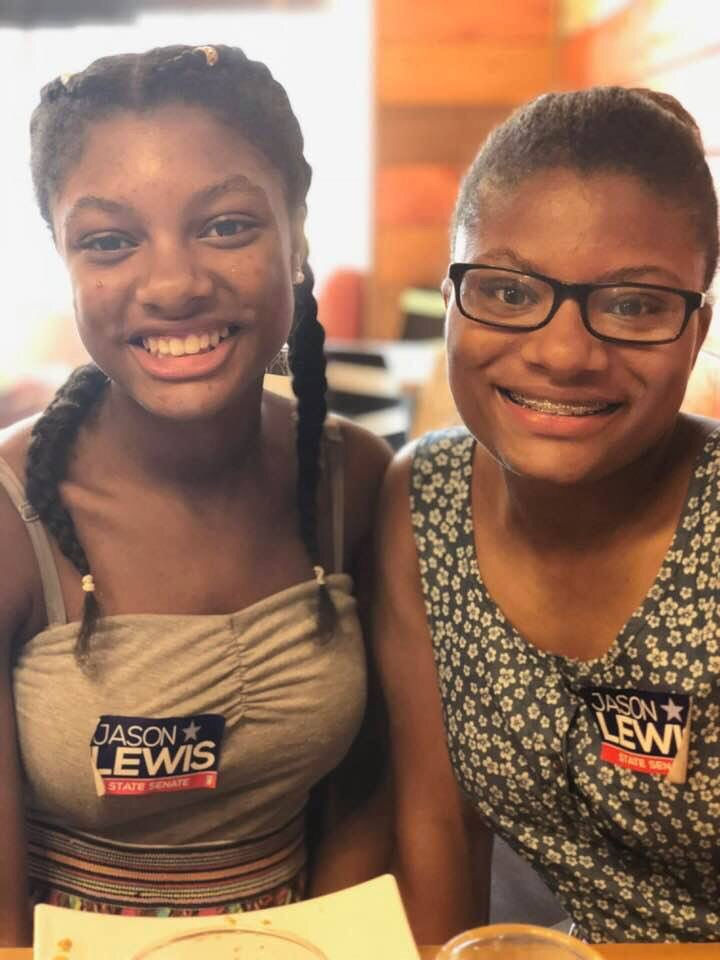Mya and Deanna Cook on Unapologetic Blackness
- Jul 25, 2018
- 3 min read
Meet The Homegirls: Advocates for African-American Students

To 17-year-old Mya and Deanna Cook, hair is more than just a fashion statement--it's a symbol of their identity, and they wear their braids with pride. In a society that seeks to marginalize African-American women, the simple act of wearing braids is revolutionary. And they're fighting a war every day.
Their struggle started last May when their Boston high school, Mystic Valley Regional Charter School, enacted a dress code that prohibited wearing hair extensions. The problem was that this rule disproportionately affected black female students, whose braids were being targeted.
All of a sudden, young black women found themselves being taken out of class to be interrogated humiliatingly by the dean and principal as to whether their hair was real. Despite the racism inherent in the hair rule, many students found it difficult to fight back for fear that they would be punished by the school community.
Deanna and Mya had always felt that a crucial first step in embracing their blackness was to wear braids for the first time. For many African American men and women, braids are worn as a protective hairstyle and are a simple way to maintain their big, beautiful Afros. Since MVRCS' dress code made it difficult for their African American students to wear their natural hair, braids seemed like the best way to take care of their hair without breaking any rules.
When the Cook sisters wore their braids for the first time, they were immediately called down to the office during class to be questioned about their hair.
In spite of the backlash, Mya and Deanna were adamant in their refusal to remove their hair. Who could blame them? Packets of hair can cost up to 20 dollars a pack, and braiding the extensions can cost hundreds of dollars at the salon. Deanna and Mya chose to take a stand against inequality, especially since none of the white females wearing extensions were called down.
The Cook sisters knew it was easier to accept the unjust policy, especially since they were threatened with detention and suspension from school activities. But they also understood that if they wanted change, they were going to have to fight for it. And so they fought, taking the case all the way up to the school board, until their cause took a life of its own.
With their story building momentum, the Cooks found themselves featured everywhere from Essence magazine to the Washington Post. From across the world, their platform drew support, allowing them to illuminate the struggles of so many other black girls, who are often criminalized because of how they look.

Deanna and Mya did not allow their unsupportive school community and cyberbullying to prevent them from seeing this change through. Despite the school’s efforts to punish Mya and Deanna for their hair, they realized that this fight was more than just being able to wear their braids freely, it was about allowing black kids to embrace their culture and not feel wrong for doing so.
Because for so many years, black students have had to deal with teachers touching their hair, questioning its realness and making them feel ashamed if it was not. Black students have had to deal with disproportionate punishment and suspension, even for an issue as simple as dress code. The Cook sisters felt that they finally reached the time in their lives where they were not going to let the predominantly white school board dictate how they were going to wear their black hair.
Mya and Deanna faced many hardships while fighting to change the hair policy, and because of the hard work from the girls, and support from their family and fellow MVRCS students, they were able to remove the hair policy at MVRCS and at other neighboring schools as well.
These two amazing young women have continued to speak at conventions and at other schools, becoming strong advocates for black issues and civil rights.





Comments